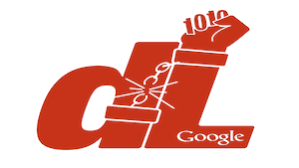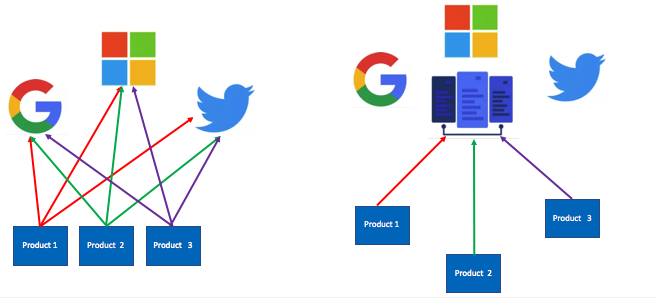Towards a Data Democracy
“Sometimes the smallest step in the right direction ends up being the biggest step of your life” — Naeem Callaway
In 2007, a small group of Google engineers in Chicago formed Google Data Liberation Front. Now, if you feel that sounds a like a radical socialist party with anti-capitalist overtones, you should see the logo. It’s a cheeky crimson liberation sign that looks like it was designed in Soviet Russia during Cuban missile crisis.


Don’t be quick to dismiss them by the logo though — they are doing some really cool stuff.
They came into my radar only recently — sometime in July 2018 — when they released their greatest and latest work — “Data Transfer Project” in collaboration with with facebook, Microsoft and Twitter.
DTP, as it’s called is a great initiative — it lets the users of any of the said social platforms a lot of flexibility to take their profile data out from one platform to another. Convenient as it is to the user, it also significantly helps companies trying to make sense out of the user data across social platforms out there.


The left is where you are at as a small product company trying to understand a user across the regular social platforms right now. And the right is what you will get if DTP works as promised. Having a single, common data model significantly benefits everyone!
At least that’s the goal.
But Google is not the only company to take this step in the right direction or to understand the value of breaking down corporate data silos. Last week, Microsoft, SAP and Adobe announced a data sharing program that benefits their users (and obviously benefits themselves)


They announced a Data Alliance called Open Data Initiative , which would help them build applications using unified data for their customers.
Information wants to be Free
“Information wants to be free” — Stewart Brand.
The iconic statement is attributed to Stewart Brand. Exactly when it was said is debatable, though. The most reliable recording was during the first Hackers Conference in 1984, Stewart Brand told Steve Wozniak:
“The right information in the right place just changes your life. On the other hand, information wants to be free, because the cost of getting it out is getting lower and lower all the time…”
The statement was ahead of it’s time. But now, with all these giant corporates taking a step in the right direction when it comes to data collaboration, it begs a bigger question. Data has been claimed as the greatest asset for some time now. How many times have we heard the now cliched “data is the new oil”? It’s unfortunately true in a very ironic sense. Many mega corporates are hoarders of data and have built massive forts around a large portion of user data they hold. They own the Data Rigs and Refineries and now want to be the OPEC of data.
What if a lot of these data could be safely, anonymously and securely be shared in the public domain? Would that change our lives for the better? Yes, it would — without a doubt. Let’s think about the possibilities:
Healthcare : What if anonymised healthcare data across the world is available in the public domain — and this data is available to all the hospitals, pharmacy and other organisations? The healthcare could really turn into a “massive learning system”. Oncology Precision network (OPeN) is one such initiative which allows physicians in 11 US states, 79 hospitals, and 800 clinics to share data. Sure, that’s a drop in the ocean in terms of all the cancer treatment data in the world — but it’s a step in the right direction. But if we could do more of this — beating cancer would not be such a distant dream, would it?
Financial Inclusivity: There are a lot of people in this world with no access to banking. Official figures vary, but it is said that it could be around 3 Billion people. We can only imagine how things would be different for them if they had access to better financial services. And don’t make the mistake of assuming this happens only in developing and poor countries. Some of us might have heard the recent tragic story of a London boy — Jerome Rogers — who killed himself because he couldn’t pay the £ 130 in fines. Many do not have access to credit because they do not have a credit history. We can see that it’s already a catch-22. They won’t get credit because they don’t ave a credit history and they don’t have a credit history because they don’t get credit. But what if there were public data that helps them calculate their financial credibility on other parameters? Wouldn’t life be a lot different for the financially underserved?
I could go on, but it’s obvious that what Stewart brand claimed in 1984 — “The right information in the right place just changes your life” — is so true an opportunity right now. So much so, we wish why it isn’t already here.
Let 2019 be the year we are truly democratising data!
